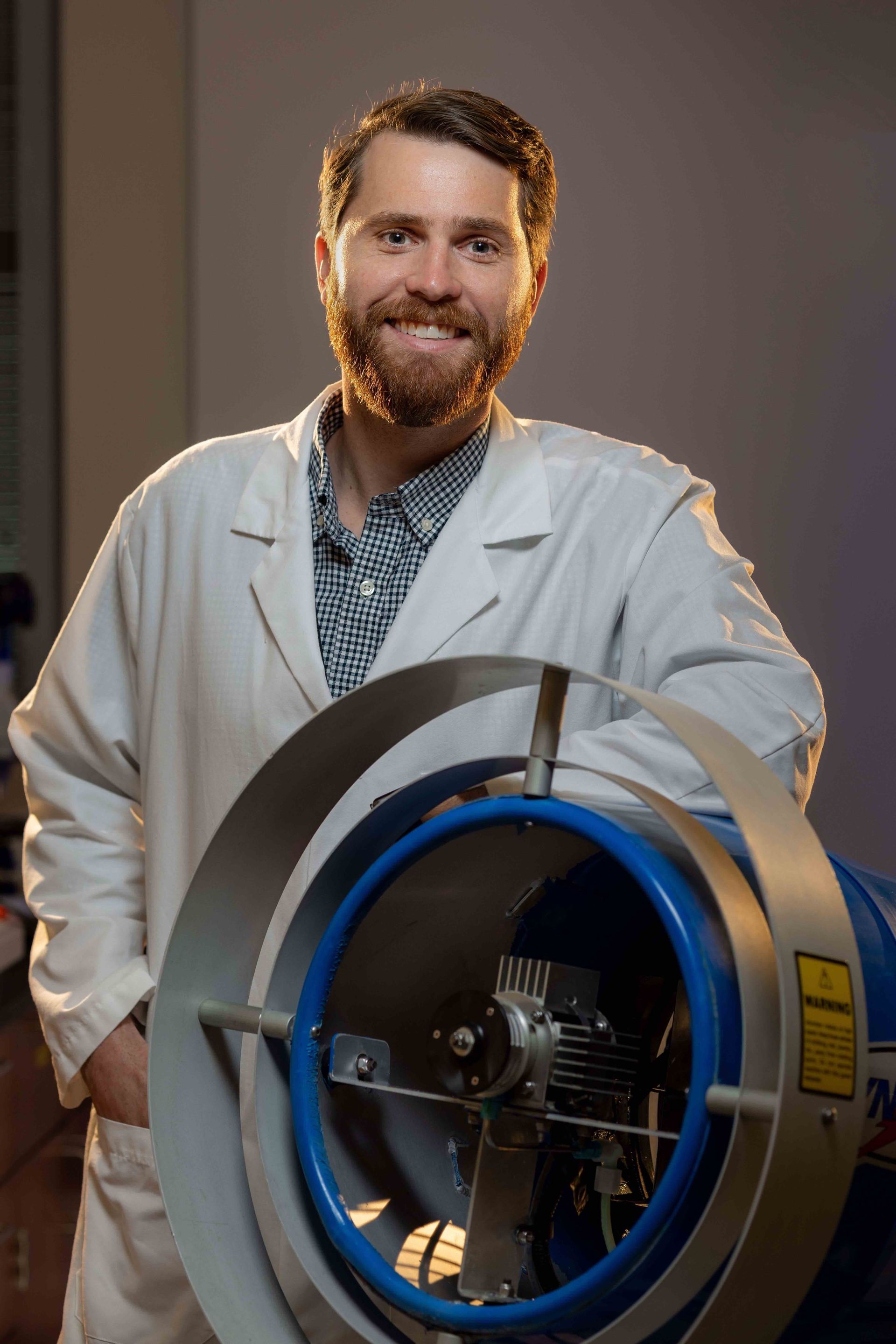Chris Cornelison named interim Associate Vice President for Innovation and Commercialization
KENNESAW, Ga. | September 6, 2023
Kennesaw State University microbiology professor Chris Cornelison will serve as interim Associate Vice President for Innovation and Commercialization, effective September 1.
Cornelison, who for the past three years has served as Director of Intellectual Property Development , will work closely with Vice President for Research Karin Scarpinato on a variety of Office of Research initiatives, focusing on applied research and venture creation.

“Chris has demonstrated his entrepreneurial expertise through the procurement of several externally funded grants, in addition to the support infrastructure he has built for faculty here at KSU,” Scarpinato said. “Moving forward, he will be instrumental in working to expand our industry relations and commercialization portfolio.”
Cornelison will primarily focus on growing applied research and entrepreneurship across the university, a focus that includes Hatchbridge , a business incubator that launched earlier this year and assists local entrepreneurs in growing their businesses by offering resources such as guidance, office space and programming.
With many academic units at KSU already engaged in applied research, Cornelison aims to direct talent across both campuses to maximize the university’s impact on the region. Developing collaborations with Hatchbridge, Coles College of Business, Research Development and Strategic Initiatives, University Advancement, Career Planning and Development, and Government Relations will be crucial in the university reaching its full potential as a source for innovative solutions with market potential.
In addition to Intellectual Property Development duties, Cornelison also operates the BioInnovation Laboratory , which currently has seven active external grants, highlighted by the lab’s work on white-nose syndrome in bats and the development of novel therapeutic interventions.
The lab is also active in culinary mushroom cultivation , which includes technology that is licensed to MycoLogic, a startup Cornelison founded with postdoctoral researcher Kyle Gabriel that has garnered numerous awards in startup competitions.
MycoLogic finished first this summer at the Georgia AgTech Summit, and earlier this year, the KSU-based startup was a finalist at the Ag Innovation Challenge sponsored by the American Farm Bureau Federation.
Cornelison’s entrepreneurial background will be essential in performing the duties of interim Associate Vice President for Innovation and Commercialization.
“As a founder of a startup at KSU, I have learned what it means to be a faculty entrepreneur,” Cornelison said. “I am thrilled to have the opportunity to support my colleagues in their pursuit of entrepreneurial activities that allow the world to benefit from the great research they are doing.”
Other BioInnovation Laboratory projects include the production of pigments from agricultural and industrial waste materials by using food-grade fungi as biocatalysts, a project that recently received venture development funding and was the research focus of 2023 Birla Carbon Summer Scholar Mark Sheehan.
Cornelison earned his B.S. in microbiology at the University of Georgia in 2009, and his M.S. and Ph.D. in applied and environmental microbiology at Georgia State University in 2011 and 2013, respectively.
It was at Georgia State University while working in the laboratory of Dr. Sidney A. Crow that Cornelison developed an interest in how research intersects with commercialization.
“I was able to see how to build an applied research portfolio and learned about many of the ways in which research products reach their full potential via commercialization,” Cornelison said. “As a postdoc, I was part of an NSF I-Corps team. This further reinforced my desire to be active in driving academic innovations to market and gave me an appreciation for understanding product-market fit and the needs of customers.”
Cornelison carried those lessons into his role of Director of Intellectual Property Development, where he built KSU’s technology transfer operations from the ground floor by creating the Innovation Launch Pad to train faculty and student inventors in lean startup methodology and customer discovery, established the Innovation Seed Grant Program to support inventors in advancing their innovation during the provisional year, and created the KSU Quick Start Licensing Program to allow faculty to quickly obtain freedom to operate for commercial utilization of their innovations.
“Technology transfer at KSU is far more advanced than it was three years ago, and I am proud of the progress we have made,” Cornelison said.
— By David Roberts
Source: https://research.kennesaw.edu/roc/stories/cornelison_avp_innovation_commercialization.php





